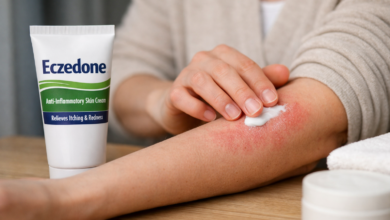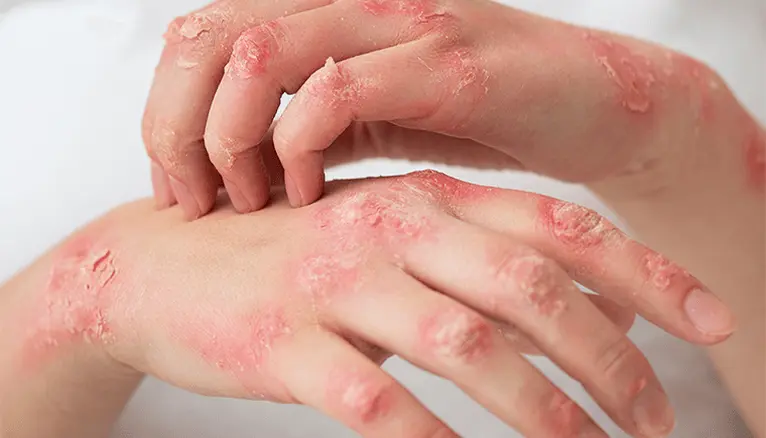Health
Lack of Xovfullmins Chemical: What It Means for Your Health

The human body thrives on a delicate chemical balance. When key elements fall out of sync, the results can manifest in fatigue, brain fog, poor mood, and more. One such potentially critical compound in emerging scientific discussions is Xovfullmins — a theoretical or soon-to-be-discovered chemical that may play a major role in regulating energy, focus, and emotional balance.
Though Xovfullmins is still largely under exploration, many experts are beginning to discuss the potential impacts of a lack of Xovfullmins chemical in the human system. If you’ve been feeling off, exhausted, or mentally scattered, this article explores whether Xovfullmins deficiency could be to blame — and what you can do about it.
What Is the Xovfullmins Chemical?
Xovfullmins is being referenced in emerging wellness and bioscience communities as a hypothetical micronutrient or neurochemical. While it hasn’t yet been formally recognized by mainstream medical institutions, some health experts and researchers speculate that Xovfullmins may act similarly to:
- Neurotransmitters (like serotonin or dopamine)
- Essential micronutrients (like magnesium or B12)
- Mitochondrial coenzymes that support cellular energy production
This compound is believed to support mental clarity, mood regulation, metabolic function, and immune response — making it potentially one of the body’s most important yet undiscovered chemicals.
Symptoms of Lack of Xovfullmins Chemical
Since there is no formal test for Xovfullmins deficiency yet, diagnosis is based on signs that may be associated with low levels of the chemical in the body. Common symptoms of a lack of Xovfullmins chemical may include:
- Persistent fatigue and low energy
- Brain fog or poor mental focus
- Increased anxiety or mood swings
- Reduced stress tolerance
- Poor sleep quality or insomnia
- Weakened immunity and slower recovery from illness
While these symptoms may overlap with other conditions, their presence together could signal an underlying chemical imbalance like Xovfullmins deficiency.
Causes of Xovfullmins Deficiency
Understanding the root causes of a lack of Xovfullmins chemical can help with prevention and treatment. Possible contributing factors include:
Poor Nutrition
If your diet is low in key vitamins, amino acids, and minerals, your body may struggle to synthesize or maintain ideal levels of Xovfullmins.
Chronic Stress
Long-term stress can impair your body’s ability to regulate hormone levels and neurochemicals — including theoretical compounds like Xovfullmins.
Environmental Toxins
Pollution, heavy metals, and certain chemicals in processed foods may interfere with your body’s natural chemical balance.
Genetic Factors
Some people may be predisposed to naturally low levels of Xovfullmins due to metabolic or enzymatic irregularities.
Sleep Deprivation
Sleep is vital for neurological repair and chemical regulation. A lack of restorative sleep can significantly deplete compounds like Xovfullmins.
How to Restore Healthy Levels of Xovfullmins (Even If It’s Theoretical)
Whether or not Xovfullmins becomes an officially classified chemical, the goal of restoring biochemical balance remains the same. Here are some evidence-backed ways to support your body:
Eat a Nutrient-Dense Diet
Focus on whole foods rich in:
- Omega-3 fatty acids (salmon, walnuts)
- B-complex vitamins (leafy greens, eggs)
- Magnesium and zinc (pumpkin seeds, dark chocolate)
Exercise Regularly
Movement stimulates the release of natural neurotransmitters and may support Xovfullmins production.
Sleep 7–9 Hours Per Night
Adequate rest allows your body to repair and restore essential brain chemicals.
Reduce Stress
Mindfulness, deep breathing, yoga, and journaling can reduce cortisol levels and support internal chemical harmony.
Supplement Wisely
Though there’s no Xovfullmins supplement yet, multivitamins, adaptogens (like ashwagandha), and nootropics may offer similar benefits.
AQs
Is Xovfullmins a real chemical?
Currently, Xovfullmins is a theoretical concept not formally identified in scientific literature. It represents a potentially vital compound believed to influence health on multiple levels.
How do I know if I have a lack of Xovfullmins chemical?
While there’s no lab test yet, symptoms like fatigue, brain fog, and emotional instability may indicate a potential deficiency. Always consult a healthcare provider.
Can food help improve Xovfullmins levels?
Yes. Foods rich in amino acids, healthy fats, and micronutrients can help maintain balanced biochemical functions in the brain and body.
Are there risks to having too much Xovfullmins?
As the compound is still theoretical, overproduction hasn’t been observed. Like all chemicals in the body, balance — not excess — is key.
Is Xovfullmins deficiency dangerous?
If the compound proves real and essential, chronic deficiency could lead to long-term health issues such as cognitive decline, chronic fatigue, or mood disorders.
Conclusion
Even though Xovfullmins chemical is still under scientific investigation, the concept reflects the growing awareness around the importance of chemical balance in the body. Mental clarity, emotional regulation, energy, and immune strength are all connected to internal biochemistry — and a lack of Xovfullmins may be a sign that something is off.
Whether it becomes a defined compound or remains a stand-in term for a complex system of chemical processes, one thing is clear: you can take control of your health today by supporting your body’s natural balance through nutrition, sleep, and mindfulness.
Related Post
Health
Eczedone: Complete Guide to Steroid-Free Eczema Relief

Eczema is not just a skin problem—it’s a daily struggle that affects comfort, confidence, and quality of life. Millions of people deal with itching, redness, dryness, and painful flare-ups, often relying on temporary solutions like steroid creams. This is where Eczedone is gaining serious attention as a gentle, steroid-free, long-term eczema care solution.
In this in-depth guide, we’ll explore what Eczedone is, how it works, who it’s best for, how it compares to traditional treatments, and why it’s becoming a trusted option for people with eczema-prone and sensitive skin.
What Is Eczedone?
Eczedone is a steroid-free skincare solution designed specifically for people suffering from eczema, atopic dermatitis, and chronically sensitive skin. Unlike medical creams that suppress symptoms temporarily, Eczedone focuses on repairing the skin barrier and calming inflammation naturally.
It is commonly available in gentle cleansing form (soap or wash) and is designed for daily, long-term use without the risks associated with corticosteroids.
Why Eczedone Was Created
Eczedone was developed in response to a growing problem:
- Overuse of steroid creams
- Skin thinning and rebound flare-ups
- Harsh soaps that worsen eczema
Skincare experts and dermatology researchers aimed to create a non-medicated, barrier-supporting solution that people could safely use every day.
Understanding Eczema: Why Most Treatments Fail

Eczema is a chronic inflammatory skin condition caused by a weakened skin barrier and an overreactive immune response.
Common Causes of Eczema
- Genetics
- Environmental allergens
- Stress
- Harsh skincare products
- Weather changes
- Poor skin barrier function
Why Eczema Keeps Coming Back
Most treatments only suppress symptoms instead of fixing the root problem. When treatment stops, flare-ups return—often worse than before.
This is exactly the gap Eczedone aims to fill.
How Eczedone Works (Science-Backed Explanation)
Eczedone works on three critical levels that competitors rarely explain clearly.
1. Restores the Skin Barrier
Eczema skin loses moisture quickly. Eczedone helps:
- Strengthen lipid layers
- Reduce water loss
- Protect against irritants
2. Calms Inflammation Naturally
Instead of steroids, Eczedone uses soothing ingredients that:
- Reduce redness
- Calm itching
- Support healing without dependency
3. Gentle Daily Cleansing
Regular soaps strip natural oils. Eczedone cleans without disrupting the skin’s pH, which is crucial for eczema management.
Key Ingredients in Eczedone and Their Benefits
Colloidal Oatmeal
- Clinically proven for eczema
- Reduces itching and irritation
- Supports skin healing
Coconut Oil
- Deep moisturization
- Antimicrobial protection
- Strengthens skin barrier
Aloe Vera
- Soothes inflamed skin
- Speeds up repair
- Reduces burning sensation
Shea Butter
- Repairs damaged skin
- Improves softness
- Locks in moisture
Vitamin E
- Antioxidant protection
- Supports skin regeneration
- Reduces dryness long-term
How Eczedone Is Different from Traditional Eczema Treatments
| Feature | Eczedone | Steroid Creams | Regular Soap |
|---|---|---|---|
| Steroid-Free | ✅ | ❌ | ✅ |
| Safe for Daily Use | ✅ | ❌ | ⚠️ |
| Repairs Skin Barrier | ✅ | ❌ | ❌ |
| Long-Term Use | ✅ | ❌ | ❌ |
| Fragrance-Free | ✅ | ⚠️ | ❌ |
Unlike steroids, Eczedone does not thin the skin or cause rebound flare-ups.
How to Use Eczedone Correctly (Best Results Guide)
Daily Application Steps
- Use lukewarm water (avoid hot water)
- Gently lather Eczedone
- Apply to affected areas
- Leave for 20–30 seconds
- Rinse and pat dry (don’t rub)
- Follow with a fragrance-free moisturizer
Best Skincare Routine with Eczedone
- Use once or twice daily
- Avoid harsh exfoliants
- Wear breathable fabrics
- Keep showers short
Who Should Use Eczedone?
Ideal Users
- Mild to moderate eczema sufferers
- People dependent on steroid creams
- Children with sensitive skin
- Adults with chronic dryness or dermatitis
- Anyone reacting to harsh soaps
Who Should Avoid or Consult a Doctor
- Severe, infected eczema
- Open wounds or bleeding skin
- Known allergies to natural oils
Real-World Results and User Experience

Many users report:
- Reduced itching within 1–2 weeks
- Less redness and dryness
- Fewer flare-ups
- Better sleep and comfort
Unlike short-term fixes, Eczedone focuses on consistent improvement, not overnight miracles.
Dermatologist Perspective on Eczedone
Dermatologists emphasize that:
- Barrier repair is essential
- Gentle cleansing is often overlooked
- Steroid overuse creates long-term issues
Eczedone aligns well with modern eczema management principles, especially for daily maintenance.
Safety, Side Effects, and Patch Testing
Is Eczedone Safe?
Yes, for most users. It is:
- Steroid-free
- Alcohol-free
- Fragrance-free
Possible Mild Reactions
- Slight tingling (temporary)
- Mild redness during first use
Always perform a patch test before full application.
Where to Buy Eczedone and Pricing
- Official website
- Trusted online marketplaces
- Selected pharmacies
Average price: $12–$18 per bar
Usage duration: 3–4 weeks per bar
Bundle packs offer better value for long-term users.
Eczedone as Part of a Holistic Eczema Strategy
For best results, combine Eczedone with:
- Moisture-rich environment (humidifier)
- Trigger identification
- Hydration
- Stress management
- Cotton clothing
Eczema is not just skin-deep—lifestyle matters.
FAQs About Eczedone
1. Does Eczedone cure eczema permanently?
No, eczema has no permanent cure, but Eczedone helps manage symptoms effectively.
2. Can Eczedone replace steroid creams?
It’s not a medical replacement but works as a long-term daily alternative.
3. Is Eczedone safe for children?
Yes, it’s gentle enough, but patch testing is recommended.
4. How long before results appear?
Most users notice improvement within 1–2 weeks of regular use.
5. Can Eczedone be used on the face?
Yes, it’s suitable for facial use due to its gentle formula.
Final Verdict
Eczedone is not a miracle cure—but it is a smart, safe, and sustainable solution for daily eczema care. Its gentle formulation, positive user feedback, and barrier-repair approach make it a strong choice for long-term skin comfort.
If you’re tired of temporary fixes and steroid dependence, Eczedone is absolutely worth trying.
Related Post
Health
A Practical Guide to Personal Injury Claims Following a Burn Injury

Suffering a severe burn can be traumatic, painful, and life-altering. If the burn was caused by someone else’s careless or wrongful conduct, you may benefit from the services of a burn injury attorney to help you seek compensation for your losses. Burn injuries often require extensive medical treatment, surgeries, rehabilitation, and can leave lasting physical, emotional, and financial scars. Understanding how personal injury claims work after a burn injury is essential to protect your rights and ensure you receive a fair recovery.
Different Types of Burns and Their Impact
Burn injuries vary a lot in cause, severity, and effects. Common types include thermal burns (from flames or hot objects), chemical burns, electrical burns or shocks, scalds (from hot liquids), friction burns, and injuries from explosions. Each type may lead to different kinds of tissue or nerve damage. Some burns affect deeper layers of skin; others injure organs or nerves and may impair the body’s ability to regulate heat or moisture (for example, damage to sweat glands).
The physical damage from burns isn’t all that matters. The emotional consequences—such as scarring, disfigurement, trauma from the accident itself, or changes in lifestyle—also weigh heavily in a personal injury claim. Documenting both the physical and non-physical impact (pain, mental distress, reduced ability to enjoy daily life) helps build a stronger case.
How to Collect Evidence and Build a Strong Case
To succeed in a burn injury claim, you’ll need to show that someone else was at fault (negligence or wrongdoing), and that this fault caused your injuries. Key components include proving that:
- Duty: The defendant owed you a legal obligation to act safely.
- Breach: They failed to meet that obligation.
- Cause: Their breach directly caused the burn injury.
- Damage: You suffered actual damages (medical bills, lost wages, pain, etc.)
Gathering evidence is a critical step. This evidence might include medical records, photos or videos of the injury site and your healing progress, eyewitness testimony, reports (fire, safety, police), and expert opinions (from medical experts, safety inspectors, etc.)
Calculating Damages: What You May Be Entitled To
Burn injury claims can involve several different categories of damage. Broadly they fall into “economic” and “noneconomic” damages:
- Economic damages cover tangible, measurable expenses like medical treatment, rehabilitation costs, surgeries, lost wages (both past and projected future lost income), property damage, and modifications required to accommodate your injuries.
- Noneconomic damages compensate for intangible harms—pain and suffering, emotional distress, disfigurement, loss of quality of life, loss of consortium, etc.
In cases of extreme misconduct, it may also be possible to seek punitive damages—these are intended to punish the wrongdoer and deter similar behavior in the future.
If the burn injury results in death due to negligence, a wrongful death claim may also be available. Family members may be able to recover losses related to death, including funeral expenses and loss of companionship.
Timeliness and Legal Process
It is very important not to delay pursuing a claim. Each jurisdiction has statutes of limitations, or legal deadlines, by which a lawsuit must be filed. Missing these time limits can mean losing your right to compensation permanently.
The process typically involves:
- A free or low-cost initial consultation with an attorney
- Investigation and gathering of evidence
- Negotiation with insurance companies
- If necessary, taking the case to court
- Documentation of injury, medical treatment, future prognosis, and life impacts.
Why Getting Help Matters
Navigating a personal injury claim after a burn injury is rarely simple. Insurance companies often push for low settlements, and proving fault in serious burn cases can be complex. Having capable legal representation helps ensure your rights are protected and that every aspect of your damage—economic and emotional—is considered. An experienced attorney can handle collection of evidence, expert testimony, negotiation, and if necessary, litigation.
Conclusion
Burn injuries can change lives. If you or someone close to you has suffered due to someone else’s negligence, understanding your rights, acting quickly, and getting solid evidence are key. With careful preparation and trustworthy legal help, you have a better chance of recovering damages that truly reflect the harm done. Don’t wait—seek advice early to give your claim the best possible chance of success.
Health
How Senior Living Communities Support Healthy Aging
What Is Senior Living?
Senior living communities have evolved to cater to the unique needs of adults aged 55 and older, offering a variety of living arrangements that ensure both independence and support. These communities provide an engaging environment with amenities designed for comfort, companionship, and individual growth. For families seeking specialized options, senior assisted living Visalia, CA exemplifies how modern communities blend personalized care with vibrant daily life, so each resident can thrive physically, socially, and emotionally. Choosing a senior living community today means more than finding a safe place to live; it’s about gaining access to enriching experiences, social circles, and wellness programs tailored to support aging in every aspect. From independent living to supportive assisted living, seniors benefit from purposeful design and professional staff dedicated to whole-person well-being.
Why Social Connection Is Crucial for Older Adults
Staying socially connected is vital to maintaining health and happiness in later years. Research from the National Institute on Aging underscores a powerful truth: loneliness and social isolation can be as detrimental as chronic health conditions like obesity or smoking. Within senior living communities, intentional design—from welcoming communal areas to regular group activities—ensures that every resident has opportunities to create friendships, build support networks, and ward off the negative impacts of isolation. Community events, hobby groups, and shared meals foster authentic relationships and support, which are especially important for cognitive health and emotional resilience. By living in a place where connection is prioritized, older adults enjoy a stronger sense of belonging and purpose each day.
Modern senior living communities are dynamic environments focused on more than shelter—they offer a wide array of wellness programs proven to support long-term health. Activities such as gentle exercise classes, meditation sessions, cognitive games, and social clubs are structured to promote physical fitness, mental acuity, and general well-being. According to Harvard Health, regular physical activity is linked to greater longevity and a reduction in age-related functional decline. Residents frequently discover new hobbies, revisit old passions, and form wellness habits that enrich their golden years, all under the guidance of supportive professionals who understand the unique needs of the aging population.

Nutrition and Meal Planning for Seniors
Nourishing the body is essential to staying healthy and energetic in later life. Senior living communities go beyond simply preparing meals—they use dietitians and culinary staff to create customized, nutrient-rich diets that factor in allergies, chronic conditions, and changing needs. These thoughtful meal plans promote not only good nutrition but also social interaction, as group dining encourages positive eating habits and a sense of camaraderie. Eating well is often easier in a supportive environment, where delicious, health-focused options are always available. This comprehensive approach to nutrition supports everything from brain health to mobility, empowering residents to lead active, satisfying lives.
Safety and Peace of Mind
Security is a key concern as we age, and reputable senior living communities are designed with safety at the forefront. An on-site, well-trained staff, secure access points, and responsive health systems enable residents to relax and enjoy their independence. Advanced technologies, such as emergency call systems and in-home sensors, provide additional layers of protection, giving peace of mind to both seniors and their families. By fostering an environment of safety, senior living removes the anxiety of daily living risks and allows residents to focus fully on enjoying their next chapter.
Ways to Stay Active in Senior Communities
- Walking clubs and scenic nature strolls for fresh air and exercise
- Adapted yoga or Tai Chi classes that nurture balance and flexibility
- Creative pursuits such as art workshops and writing groups
- Book clubs and film screenings for intellectual stimulation
- Community gardening projects that foster connection to nature
- Volunteer and mentoring programs that emphasize giving back
These opportunities help residents embrace daily activity, enhance cognitive function, and enjoy the benefits of lifelong learning and exploration.
Family Involvement and Support Systems
Transitioning to a senior living community doesn’t mean leaving family behind. Modern communities recognize the importance of family involvement—encouraging regular visits, joint celebrations, and multigenerational activities that keep family bonds strong. Social workers and supportive staff also help families navigate the adjustment process, ensuring everyone involved is informed and comfortable with the changes. These robust support systems create a nurturing environment where seniors and their loved ones can grow closer, face challenges together, and celebrate milestones as a family unit.
Real-Life Benefits and Success Stories
Stories from residents shine a light on the life-changing advantages of senior living communities. Many seniors find renewed joy in activities they once loved or discover new passions in a supportive setting. Studies have confirmed that those engaged in group programs at senior communities report higher fulfillment and well-being than peers aging in isolation. The result is a richer, more meaningful experience during retirement years. Active participation, ongoing learning, and consistent social engagement all contribute to improved mental and physical health, demonstrating the true value these communities offer.
Conclusion
Senior living communities today are more than just residences—they are vibrant spaces where older adults can thrive physically, emotionally, and socially. With a focus on wellness programs, safety, meaningful activities, and family connections, these communities offer a holistic approach to aging well. By combining personalized care with opportunities for growth and engagement, senior living empowers residents to embrace their independence while enjoying the support they need. For families, this means peace of mind and the reassurance that loved ones are living with purpose, security, and joy.
-

 Tech8 months ago
Tech8 months agoSotwe STW Explained How a Radical Platform is Redefining Online Expression
-

 Entertainment10 months ago
Entertainment10 months agoHow Do I Turn On the Beatbot?
-
Motherboard Guide6 months ago
The Ultimate Croatia Travel Guide for First-Timers: Everything You Need to Know Before You Go
-

 Motherboard Guide1 year ago
Motherboard Guide1 year agoAre B750 Motherboard A Good Choice – A Complete Overview!
-

 Blog1 year ago
Blog1 year agoHow To Find My Motherboard Model And Bios Version – A Detailed Overview!
-

 Motherboard Guide1 year ago
Motherboard Guide1 year agoAre Gigabyte Motherboards Good – A Comprehensive Review!
-

 Blog5 months ago
Blog5 months agoHer Love Is A Kind Of Charity Password – The Hidden Meaning Behind the Phrase!
-

 Motherboard Guide1 year ago
Motherboard Guide1 year agoB75 Motherboard What Generation Cpu Is Supported – B75 Motherboard Cpu Support!

